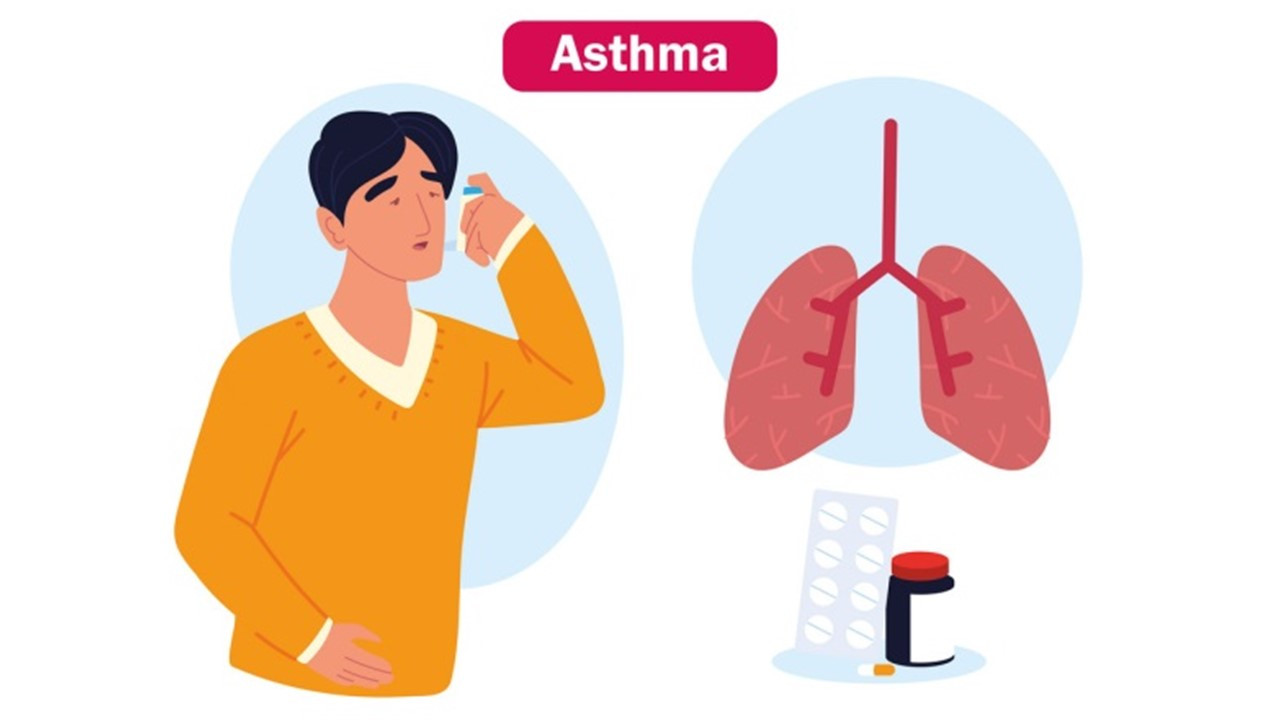Yes, there are several non-pharmacological treatments and lifestyle modifications that can be used to complement asthma management and improve overall control of the condition. These non-pharmacological approaches can be particularly beneficial for individuals with asthma and can help reduce symptoms and the need for medication. Some non-pharmacological treatments and strategies for asthma include:
- Identifying and Avoiding Triggers: Recognizing and minimizing exposure to asthma triggers is essential. Common triggers include allergens (e.g., pollen, dust mites, pet dander), smoke, air pollution, cold air, and respiratory infections. Taking steps to reduce exposure to these triggers can help prevent asthma symptoms.
- Allergen Control: For individuals with allergic asthma, allergen control measures can be highly effective. This may involve using allergen-proof covers for pillows and mattresses, regularly cleaning and vacuuming the home, and avoiding or minimizing contact with known allergens.
- Dietary Changes: While there is no specific “asthma diet,” some people with asthma find that certain dietary modifications, such as reducing intake of processed foods and increasing consumption of fruits and vegetables, can help improve their overall lung health.
- Regular Exercise: Regular physical activity is important for overall health and can improve lung function and reduce asthma symptoms. However, individuals with exercise-induced bronchoconstriction (EIB) should work with their healthcare provider to manage symptoms during exercise.
- Breathing Exercises: Techniques like diaphragmatic breathing and pursed-lip breathing can help improve lung function and reduce the feeling of breathlessness during asthma episodes. These exercises can be taught by a healthcare provider or respiratory therapist.
- Stress Management: Stress can exacerbate asthma symptoms in some individuals. Stress reduction techniques, such as meditation, yoga, and mindfulness, may be helpful in managing asthma.
- Weight Management: Maintaining a healthy weight can be beneficial for asthma management. Obesity can worsen asthma symptoms, so weight loss and a healthy diet may help.
- Humidifiers and Dehumidifiers: Depending on the climate and individual sensitivities, adjusting indoor humidity levels with the use of humidifiers or dehumidifiers can make the environment more comfortable for people with asthma.
- Regular Check-ups: Even when asthma is well-controlled, regular check-ups with a healthcare provider are essential to monitor lung function, assess asthma control, and make any necessary adjustments to the treatment plan.
- Asthma Education: Education is a critical component of asthma management. Learning about asthma, how to use inhalers correctly, and understanding the importance of adhering to an asthma action plan can empower individuals to better manage their condition.
It’s important to note that while these non-pharmacological treatments can be beneficial, they are often used in conjunction with prescribed asthma medications as part of a comprehensive asthma management plan.
Individuals with asthma should work closely with their healthcare providers to develop a personalized plan that includes both pharmacological and non-pharmacological strategies tailored to their specific needs and triggers.
consult Dr. Parthiv Shah is one of the Best Pulmonologist in Kandivali at Sparsh Super Speciality lung Clinic. They can assess your condition and determine whether a referral to a pulmonologist is necessary.

